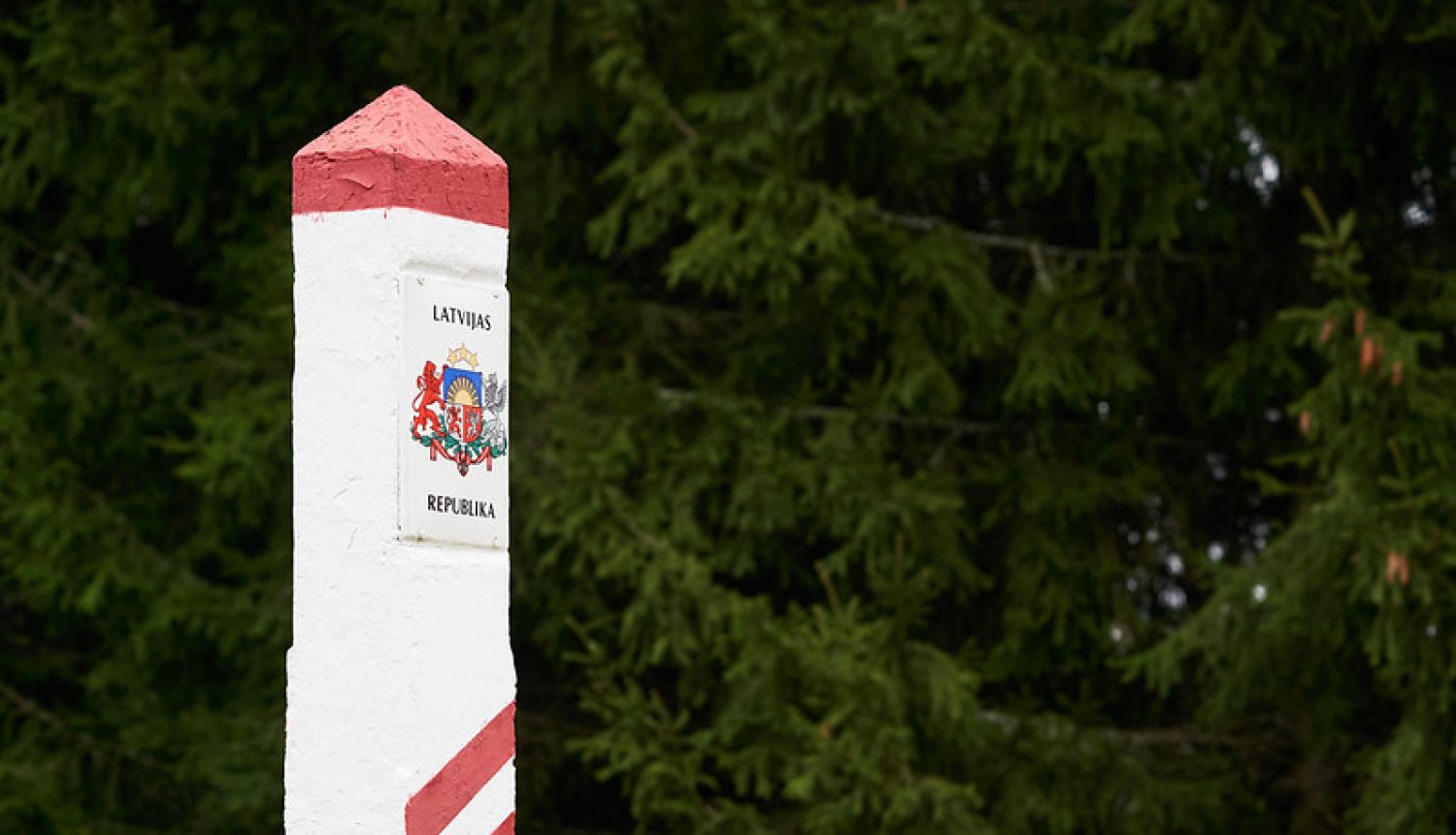On 8 August, the Cabinet of Ministers (CoM) announced a reinforced border security regime for six months from 11 August 2023 to 10 February 2024 in the administrative territories of Ludza, Krāslava, Augšdaugava municipalities and Daugavpils.
The Order was issued to ensure the inviolability of the State border and to prevent a threat to the State, in view of the disproportionately high number and increasing trend of cases of illegal and attempted crossing of the Latvian–Belarusian border.
The competent authorities in Lithuania and Poland also continue to receive information on cases of illegal State border crossings from the territory of Belarus. It is therefore essential to ensure a coordinated inter-state response to such illegal state border crossing attempts in order to ensure equivalent State border surveillance across the region with Belarus.
As of 11 August 2021, more than 14 000 persons have not been allowed to cross the Latvian State border outside the border crossing points and procedures established for legal entry, including 5 461 persons between 1 January 2023 and 7 August 2023.
Meanwhile, 282 persons (117 of them minors) have been admitted on humanitarian grounds since January 2023.
The Order also provides for the State Border Guard (SBG) to intensify surveillance of the Latvian–Belarusian border, with the National Armed Forces (NAF) and the State Police (SP) providing the necessary support to the SBG.
Already today, the SBG is constantly guarding the eastern border, patrolling and monitoring it with technical means, also attracting additional forces from the SP and the NAF.
According to the Ordinance, the SBG and the SP officials are authorized to enter residential and non-residential premises and land plots in order to detect hiding places of persons who have illegally crossed the State border, to apprehend persons who have illegally crossed the State border or to prevent a threat to the life of persons, in case of preventing or overcoming a threat, without obtaining the permission of the owner, possessor or holder.
At the same time, the SBG and the SP have the right, if necessary, to provide food and basic necessities to persons attempting to cross the State border outside the border crossing points established for lawful entry. This regulation applies only to those persons who exceptionally cross the State border outside the border crossing point and face a threat to their life or are in the transit zone between the Latvian–Belarusian State border zones and there is a threat to life, e.g. frostbite, overheating, but there are no objectively justified circumstances that would necessitate immediate entry.
The Order also provides that the Emergency Medical Aid Service and state and municipal hospital medical institutions shall, at the request of the SBG, provide the necessary medical assistance to such persons.
The expenditure related to the implementation of the measures necessary for the execution of this Order shall be charged to the programme “Funds for Unforeseen Events” of the State Budget.
Border control is an essential State function within the European Union (EU), which serves not only to protect the external borders of the Member States, but also of the EU as a whole. In addition, only lawful entry into the country or crossing the State border at the places and in the manner prescribed for that purpose is to be considered admissible.
It has already been reported that on 22 June, the Saeima approved in its second – final – reading the amendments to the State Border Law of the Republic of Latvia, as well as the amendments to the State Border Guard Law, which were deemed urgent. The draft laws entered into force on 14 July this year.
The draft law “Amendments to the State Border Guard Law” was justified by the need to clarify the right of the State Border Guard to prevent the crossing of the state border outside the places and procedures established for legal entry. The draft law “Amendments to the State Border Law of the Republic of Latvia” was drafted in order to introduce a special regulation for situations when it is necessary to implement a reinforced border security regime. The amendments to the State Border Guard Law and the Law on the State Border of the Republic of Latvia are aimed at protecting the external border of Latvia and the EU against hybrid attacks, as well as providing broad procedural guarantees for persons who might be affected by this regulation and protecting the right of asylum seekers to apply for international protection;
The need for the amendments was particularly highlighted by the increasing trend of illegal State border crossings and attempts to do so, as well as the instrumentalization or hybrid attack by the current regime in Belarus on the external border of Latvia and the EU.
Similarly, the war against Ukraine, launched by Russia and openly supported by the Belarusian regime, should be seen as an additional risk factor and a possible motivation for Belarus to continue its efforts to destabilize the situation on its State border with Latvia.



